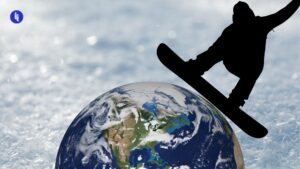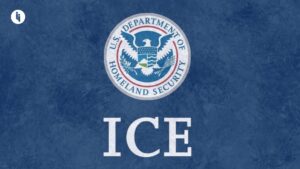Sri Lankans head to the polls tomorrow (Saturday), capping off a high-stakes telenovela that’s truly worthy of your attention, dear Intriguer.
But first, dust off your copy of Top Gun: Maverick and drop the needle on some Adele, because we’re rewinding all the way back to 2022.
That’s the year Sri Lanka’s economy broke. Saddled with debt and battered by Covid, the country ran out of foreign reserves. As a result:
Stay on top of your world from inside your inbox.
Subscribe for free today and receive way much more insights.
Trusted by 160,000+ subscribers
No spam. No noise. Unsubscribe any time.
- Inflation hit 70%
- Tariffs surged an Uber-worthy 65%
- Food and fuel imports stopped
- The shortages then triggered mass protests
- And the then president (Gotabaya Rajapaksa) fled to Singapore.
And to be clear, Rajapaksa is not any ol’ name. It’s the political dynasty that’s dominated Sri Lanka for decades. So to see protestors storming Rajapaksa compounds and sending family members into hiding? A big deal.
But the Rajapaksa family still had clout in parliament, giving them a say over who would step in to complete Gotabaya’s term. So… enter Ranil Wickremesinghe, the record six-time former prime minister. He’s been in power ever since (2022) and by many accounts he’s been a success:
- Inflation is now down to a cool 0.5%
- The rupee has stabilised
- The economy is now projected to grow, and
- Hours ago, he announced a $12.5B restructure of Sri Lanka’s foreign debt (critics have objected to the convenient, pre-election timing).
But life is still tough for millions of Sri Lankans grappling with a brutal cost of living crisis, meaning folks are very open to some of the 38 alternatives on offer at the ballot box tomorrow. We won’t walk you through all 38 (can you imagine), but here are four:
- First, there’s the incumbent Wickremesinghe above, who touts his two-year track record, but folks are still unhappy and he’s seen as part of the ‘old guard’.
- Then there’s Dissanayake, who heads up the main left-leaning coalition. He’s seen as closer to China than India and played a key role in ousting Rajapaksa, but his party has an ugly past (including bloody Marxist insurrections in the 1980s) – and yet who knows, maybe Sri Lanka’s many younger voters won’t mind.
- Coming through the middleis Premadasa,who’s managed to garner support across Sri Lanka’s various ethnic and religious minorities with his call for unity – it’s particularly notable because his father (a former president) was actually assassinated by a Tamil suicide bomber back in the 1990s.
- And then of course, it wouldn’t be a proper Sri Lankan election if there wasn’t yet another Rajapaksa in the mix, so this time it’s 38-year-old Namal’s turn – he’s the son of one former president, and the nephew of the other who fled to Singapore. Nobody seems to think he’ll win, but he’s cementing himself as the dynasty’s heir.
So who’s going to win?
Even the astrologers who’d ordinarily be sharing their predictions in Sri Lankan media are staying pretty silent this time around, reflecting not only the uncertainty across 38 candidates, but maybe also the sheer stakes for Sri Lanka’s 22 million people.
INTRIGUE’S TAKE
Okay, cool story Hansel, but why does Sri Lanka really matter?
Well, a big part of the answer revolves around its location, right in the middle of the Indian Ocean. World powers have been vying for control of that ocean for centuries. And competition has been heating up lately.
One example is the strategically located port of Hambantota, which China financed and now semi-controls via a state-owned conglomerate which got a 99 year lease back in 2017, sparking accusations (which China denies) of ‘debt trap diplomacy’.
The second example is in the growing frequency of port visits by some of China’s spy ships like the Shi Yan 6, Xiang Yang Hong 3, and Yuan Wang 5. Growing objections from neighbouring India, the US, and beyond nudged Sri Lanka to issue a one-year pause on these ‘foreign research vessel’ visits in January.
In both examples, the key decisions came from the very top, which is one reason why these elections matter so much. It’s also why India, for example, hosted Dissanayake (one of the contenders above) for a red carpet visit in February. Nobody’s taking any chances.





